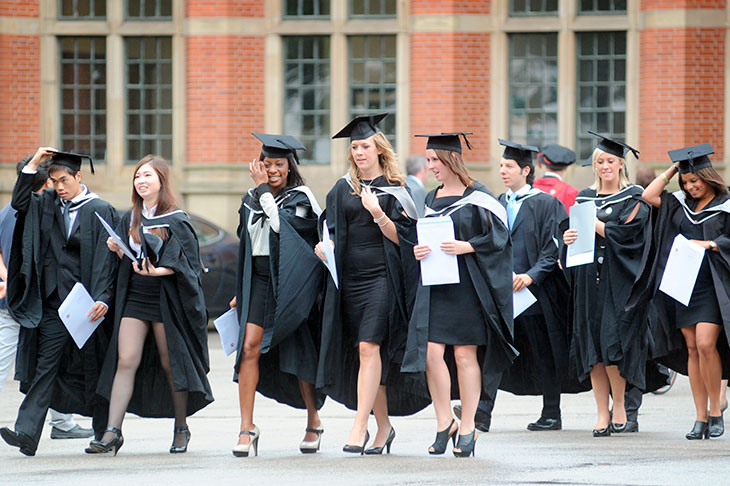It is often said that the left does not understand human nature. Yet it is difficult to think of anything as antithetical to Homo sapiens as the notion, popularized by free marketeers during the 1980s, that people would willingly evacuate those parts of Britain where ‘market forces’ had decreed that collieries and steelworks were no longer profitable. People did not ‘get on their bikes’ — in Norman Tebbit’s notorious phrase — once industry was shut down; instead they grew resentful at a world they felt had little respect for their lives or communities.
We often refer to these people as ‘left behind’ — or as the journalist and author David Goodhart calls them, ‘Somewheres’. Shortly after the Brexit referendum of 2016, Goodhart wrote another book which popularized that term, along with ‘Anywheres’ — a division which (he argued) had replaced class antagonisms as the main political dividing line in contemporary Britain. Anywheres were more at home in airport terminals than working men’s clubs; Somewheres favored community and family, and lived in the towns where they had grown up.
Goodhart’s latest book, Head Hand Heart: Why Intelligence is Over-Rewarded, Manual Workers Matter, and Caregivers Deserve More Respect, builds on those (by his own admission) imperfect categories, and is concerned with improving the status of Hand (manual work/basic job) and Heart (care work). Our ‘bloated cognitive class’ of Head workers has become too powerful, Goodhart argues.
Drawing on Michael Young’s dystopian novel The Rise of the Meritocracy, Goodhart laments the peculiar manifestation of social mobility in Britain whereby we ‘undervalue everything that is not cognitively complex’. We hear a great deal from politicians about the mobility of ‘poor but bright’ kids and little about the poor but less academically gifted. This is a strange — and morally questionable — state of affairs considering what we know about intelligence: that it is to a significant extent heritable.
Moreover, we are apt to confuse cognitive ability with moral worth. ‘It creeps into the language of everyday life,’ writes Goodhart. ‘Newspapers are far more likely to highlight the accidental death of a promising 22-year-old medical student than a 22-year-old who works as a hairdresser.’
Another feature of Britain’s overvaluing of cognitive (Head) ability is the drive to send increasing numbers of young people to university — many of whom, in Goodhart’s view, ‘are not suited to higher education and would do better going straight into jobs’. His book answers Tony Blair’s famous rallying cry — ‘Education, education, education’ — with an important question: education for what, and by whom?
Politicians of both main parties have spent decades constructing a ladder out of provincial towns for the academically gifted under the guise of meritocracy — an ideology that has ‘swept all before it’, as Goodhart writes. Yet those going to university are often sold an unrealistic picture of post-university life: the much trumpeted graduate ‘pay premium’ mainly applies to those attending the top Russell Group universities. Moreover, as degrees become ubiquitous, what Goodhart calls a ‘cycle of credential inflation’, ensues. The logical endpoint is janitors and babysitters requiring PhDs.
Parallel to the growth of bloated, second-rate universities, the status attached to Hand and Heart jobs has declined, says Goodhart. Consequently, those who choose to live and work in the communities where they grew up often feel ‘left behind and diminished’. To get on you have to get out. A speech in 2017 by Justine Greening, the former UK secretary of state for education, made a revealing comment about growing up in Rotherham. ‘I knew there was something better out there,’ Greening said. Her comments sounded unexceptional to fellow politicians and journalists, most of whom are marinated in the assumptions and prejudices of the cognitive class. Yet, as Goodhart observes, ‘the unselfconscious way in which a (then) British cabinet minister doubts whether it is possible for an able, ambitious person to live a fulfilled life in a town of 120,000 people…reveals something flawed about modern Britain’.
Indeed it does, and those of us who are products of social mobility (I left my own working-class coastal town aged 23) see it each time we return home: the replacement of skilled manual work with insecure jobs in call centers, distribution sheds and bars; the docile migrant workers shipped in to do drone work; the gray-skinned, obese men and women of working age who spend their afternoons listlessly congregating in forlorn and dilapidated high streets.
Social mobility isn’t a bad thing in itself, as Goodhart freely admits; but what are we offering to those people — arguably the majority — who would prefer to stay put? Nothing much, it seems: ‘The gap between the richest and poorest regions in the UK is almost twice as large as in France and three-quarters larger than in Germany.’
[special_offer]
The diminishment of Hand and Heart work in Britain in the 21st century isn’t simply about money — nor nostalgia for a bygone era of steady jobs in pits and steelworks: most of the people wistful for coal mining have never seen a coal seam up close. But Goodhart has rightly noted the loss of status associated with being working class. This is acutely felt, and manifests in myriad ways. He provides a depressing anecdote of a handsome car mechanic who hides his job on dating apps, even though he earns good money, because women seem to lose interest when they learn what he does for a living.
Goodhart notes in the preface that he wrote most of the book ‘before the COVID-19 crisis struck’. The pandemic will have inconvenienced many authors wading through half-completed manuscripts; however, it allows Goodhart to strike an optimistic note. Heart and Hand workers are back in vogue. As Britain went into lockdown at the end of March, the term ‘key workers’ entered the lexicon, and we stood piously on our doorsteps and ‘clapped for carers’. ‘In a brief inversion of the status hierarchy, many of the truly key workers turned out to be people who did not go to college, maybe those less adept at manipulating information,’ writes Goodhart. One hopes that this newfound respect for the people whose vitally important jobs have hitherto been viewed as low status will translate into better pay and conditions as well as greater esteem.
Head Hand Heart is one of the better attempts to voice the predicament of those whose dream — to live an ordinary, decent life — is often thwarted by a cognitive-obsessed society that disdains those who are not natural exam-passers. Pleasingly, Goodhart’s book makes the case for a recalibration of Britain’s economic priorities, while eschewing the chip-on-the-shoulder clichés that ruin so many other contemporary anti-establishment tracts.
This article was originally published in The Spectator’s UK magazine. Subscribe to the US edition here.


















